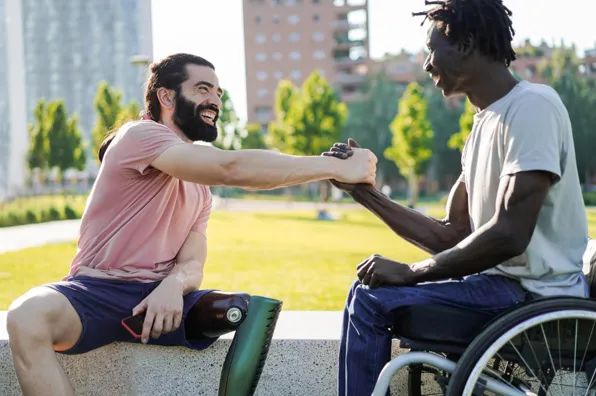In today’s fast-moving world of texting, social media, and instant messaging, acronyms are the shorthand of communication.
They save time, add a casual tone, and often make conversations feel more personal. But sometimes, they can be confusing—especially if you stumble upon one you’ve never seen before.
One of the more commonly used expressions in text is “WYF.” You might’ve received it in a message and wondered, “What does this actually mean?” You’re not alone. That’s why this comprehensive guide is here—to help you understand what “WYF” stands for, how it’s used, and what you can say instead based on your tone, context, and audience.
Whether you’re a student navigating chats, a professional communicating politely, or simply someone trying to avoid confusion online, this article will guide you through it all.
What Does WYF Mean?
WYF is an acronym that stands for “Where You From.” It’s a casual and often informal way of asking someone about their place of origin or current location. You’ll usually see this expression used in direct messages, dating apps, or casual text conversations.
Examples:
- “Hey! WYF?”
- “WYF, you sound like you’re from the South!”
This acronym is typically used in a relaxed or flirty context. It’s a quick way for someone to get to know a bit more about you without making the message too long or formal.
Is WYF Polite or Rude?
The tone of “WYF” depends largely on who is using it and how it’s being used. In general:
- Casual or flirty tone: Acceptable among friends, potential romantic interests, or peers.
- Professional or formal settings: Not recommended. It can come across as too relaxed or even unprofessional.
Tone and context play a huge role. For example, someone saying “WYF?” in a job interview chat would be inappropriate. But on Tinder? Totally fine—if that’s the vibe you’re going for.
Why Do People Use WYF in Text?
Text messaging thrives on brevity. People love to shorten expressions to keep conversations quick and engaging. WYF is easy to type and feels less formal, which is why it’s popular, especially among younger audiences.
Here’s why someone might use it:
- To initiate small talk
- To break the ice in dating apps
- To find common ground based on location
- To keep the message short and friendly
When NOT to Use WYF
There are times and places where “WYF” just isn’t appropriate.
Avoid using it:
- In work emails or professional messages
- When speaking to someone significantly older or in a formal setting
- If you don’t have a comfortable rapport with the person
- When you want to maintain a respectful or professional tone
In those cases, opt for one of the alternatives we’ll explore next.
Alternatives to WYF: Casual, Polite & Professional Options
Depending on your tone, relationship with the person, and communication platform, you might want to use a different phrase instead of WYF.
Below are 11 alternatives to “WYF,” organized by tone and context—with examples and nuance explained to help you pick the best option.
1. Where are you from? 🌍 (Neutral/Casual)
This is the full version of WYF. It’s straightforward, polite, and appropriate in most situations.
Example:
“Nice to meet you! Where are you from originally?”
✅ Great for: Texts, casual conversations, introductions
❌ Avoid if: You want something shorter in flirty or playful chats
2. What’s your hometown? 🏡 (Friendly/Curious)
This feels a little warmer and more personal than “Where are you from?”
Example:
“Just curious—what’s your hometown?”
✅ Great for: Friend-making apps, conversations with colleagues
❌ Avoid if: You’re unsure how familiar the person wants to get
3. Which city do you live in? 🌆 (Professional/Polite)
This version sounds formal and respectful. It avoids any assumptions about nationality or ethnicity.
Example:
“For delivery purposes, which city do you live in?”
✅ Great for: Business messages, customer service, or remote work chats
❌ Avoid if: You’re trying to keep things light and informal
4. Where did you grow up? 👶 (Personal/Nostalgic)
This question can spark deeper conversations and memories.
Example:
“I’m from Chicago. Where did you grow up?”
✅ Great for: Building bonds, friendly dialogue
❌ Avoid if: You’re in a rushed or surface-level conversation
5. What’s your background? 🎓 (Professional/Curious)
While it can also relate to cultural or academic background, this question is open-ended and respectful.
Example:
“We’re a diverse team! What’s your background?”
✅ Great for: Interviews, team introductions
❌ Avoid if: You want a specific geographical answer
6. What part of town are you in? 🗺 (Informal/Local)
This is great when you’re both in the same city or state.
Example:
“I’m near downtown. What part of town are you in?”
✅ Great for: Local chats, planning meet-ups
❌ Avoid if: You’re talking to someone far away
7. What’s your current location? 📍 (Professional/Logistical)
Useful for work-related conversations, deliveries, or planning events.
Example:
“To finalize the report, what’s your current location?”
✅ Great for: Formal situations, remote collaboration
❌ Avoid if: You want to be casual or chatty
8. Where do you call home? 🏠 (Warm/Sentimental)
This version adds emotional depth and feels more reflective.
Example:
“I’ve moved around a lot. Where do you call home?”
✅ Great for: Meaningful chats, deeper relationships
❌ Avoid if: You’re just looking for a quick answer
9. Where are you based? 💼 (Professional/Concise)
Very common in the workplace or networking events.
Example:
“Thanks for reaching out. Where are you based?”
✅ Great for: LinkedIn, professional introductions
❌ Avoid if: You’re speaking casually or romantically
10. Are you local? 🚗 (Informal/Quick)
Short, friendly, and often used when trying to make plans.
Example:
“Hey! Are you local to the area?”
✅ Great for: Dating apps, event invites, small talk
❌ Avoid if: You need a detailed or specific response
11. Which country are you from? 🌐 (Polite/Direct)
Best used when chatting internationally and you want clarity.
Example:
“I love learning about new cultures. Which country are you from?”
✅ Great for: International conversations, cultural exchanges
❌ Avoid if: You want to keep things broad or regional
Choosing the Right Phrase: Tone and Context Matter
Here’s a quick breakdown to help you decide:
| Goal | Best Phrase to Use |
|---|---|
| Polite & professional | “Where are you based?”, “Which city are you in?” |
| Friendly & casual | “Where are you from?”, “What’s your hometown?” |
| Romantic or flirty | “Are you local?”, “Where did you grow up?” |
| Sentimental or emotional | “Where do you call home?”, “What’s your background?” |
| International conversations | “Which country are you from?”, “Where are you from?” |
The right alternative helps shape the tone of your conversation. Think about how formal the relationship is, what platform you’re on, and how well you know the person.
Final Thoughts:
Language is flexible, and how we express ourselves matters. WYF is a casual, sometimes flirty shorthand that’s great for texting, but it doesn’t always fit every situation.
The good news is that you now have a toolkit of polished, varied alternatives to help you communicate better based on your goal and tone. Whether you’re chatting with a friend, flirting with a crush, or emailing a colleague, choosing the right wording helps your message land the right way.
Remember: clarity, tone, and respect go a long way in making any conversation smoother and more effective. So next time you’re tempted to type “WYF,” consider your audience—and you’ll likely come across even better.




